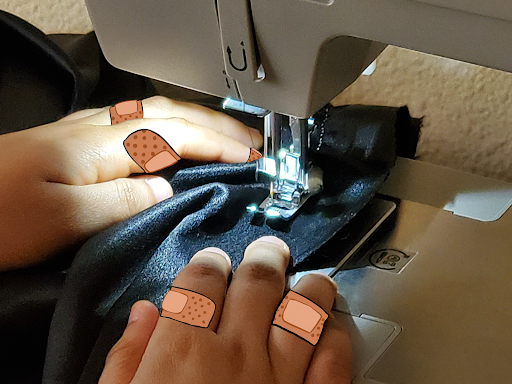By Sakshi Venkatraman
Staff Writer
@oompapa1
Every revolution begins with a small victory; the point where the struggle becomes a fight; the point where people realize things are starting to change.
In Texas, that change came Feb. 19, with the first legally sanctioned same-sex marriage in the state. The lesbian couple has been together for 30 years, and were wed in the office of a Travis County clerk with their 18 and 13-year-old daughters.
Although the union of these two women seems like a step forward for Texas’ Lesbian Gay Bisexual Transgender (LGBT) community, the issue that has seemingly traveled the state through whispers is whether or not there will be any more steps taken.
Immediately after the women were married, Texas Attorney General Ken Paxton appealed to the state Supreme Court, which agreed to block all other same-sex couples from getting their marriage licenses.
As it stands, Texas has a strict ban on gay marriage and a policy of voiding any marriage licenses that same-sex couples received in other states. With intensity increasing within the past 10 years, the end for this ban has been continually protested throughout the state.
Although Texas is one of the largest and most diverse states in the country, it can hardly pride itself in being one of the most welcoming. Starting from the Civil Rights movement and segregation of the 20th century, the Lone Star State has always been one of the last to accept the new norms and the first to turn a blind eye to the human aspect of cases like these.
The same pattern follows suit with the issue of gay marriage. To me, it is surprising that out of the 26 million citizens in Texas, most of them have made the decision to keep two people who love each other from legally unifying. When you further delve into that subtopic, it becomes clear that most people are against it because of the overwhelming Christian majority of the state.

The bottom line to this whole issue is that there is supposed to be a separation of church and states but so far, in Texas, peoples’ religion is dictating our laws on marriage. The marriage between these two women was called “a moral failing” and an “abrogation of states rights” by Texan leaders.
“I believe the only [moral] violation is not letting people get married,” Coppell High School sophomore Gay Straight Alliance vice president Grant Spicer said. “We are all citizens; I mean, all men and women were created equal so why are we put down by that definition? We should be able to marry who we want and there is really no justifiable reason as to why we can’t.”
There is a limit to how far people can take their religion, and my belief is that when it impedes another person’s constitutional rights, it needs to take a seat. Following that tangent, no matter how much a person or a body of people think they are protecting the world from “deadly sin,” the morality of love is not an issue that should lie in the hands of the people for them to say “yes” or “no” to.
In 20 years, we will view the issue of gay marriage just like we now view interracial marriage, as something normal and unquestionable. Whenever I hear people talking about the sacrilege of same-sex unions, I have a sickening feeling that my grandkids are going to read about it in their history textbooks and think, “Wow, my grandmother sure did live during a awful, barbaric time.”
The question, “Why didn’t the government let other people love?” will soon be analogous to the question, “Why didn’t the government give black people equal rights?” or “Why did the government tax people for their religion?”
Zooming out, it seems so simple. Love is simple. But legality is complicated. I think it is safe to say that the two do not coexist well.
With regards to Texas’ first same sex marriage, what seems to be the icing on the cake for some skeptics is that the marriage was only sanctioned because one of the women had “immediate health issues”. These “issues” took the form of a deadly ovarian cancer, diagnosed a year prior to the marriage.
A similar case happened in Indiana where a court made an exception for a lesbian couple because one of the women was dying of cancer.
To put it simply, it saddens me and angers me greatly. Although it is fantastic for these women, we have to acknowledge the fact that there are millions of others like them who are not willing to fight as hard to get their name on a piece of paper. And the bottom line is, they should not have to.
Fixing this issue is not black and white, either. But the one thing that I am sure of is that change begins with us: the people. We live in one of the most mixed countries in the world, yet still, we need to learn to open our minds and our hearts to our fellow humans and see it from their eyes before any change can be made.
We cannot deprive people of life’s essential nutrient and call it “morally right”. Love, in whatever form, should be clung to and cultivated, especially in a time of such hatred and war like the one we live in right now.
For the millionth time in our cyclic history, we need to be accept differences and move on.
For the Con side, click here















